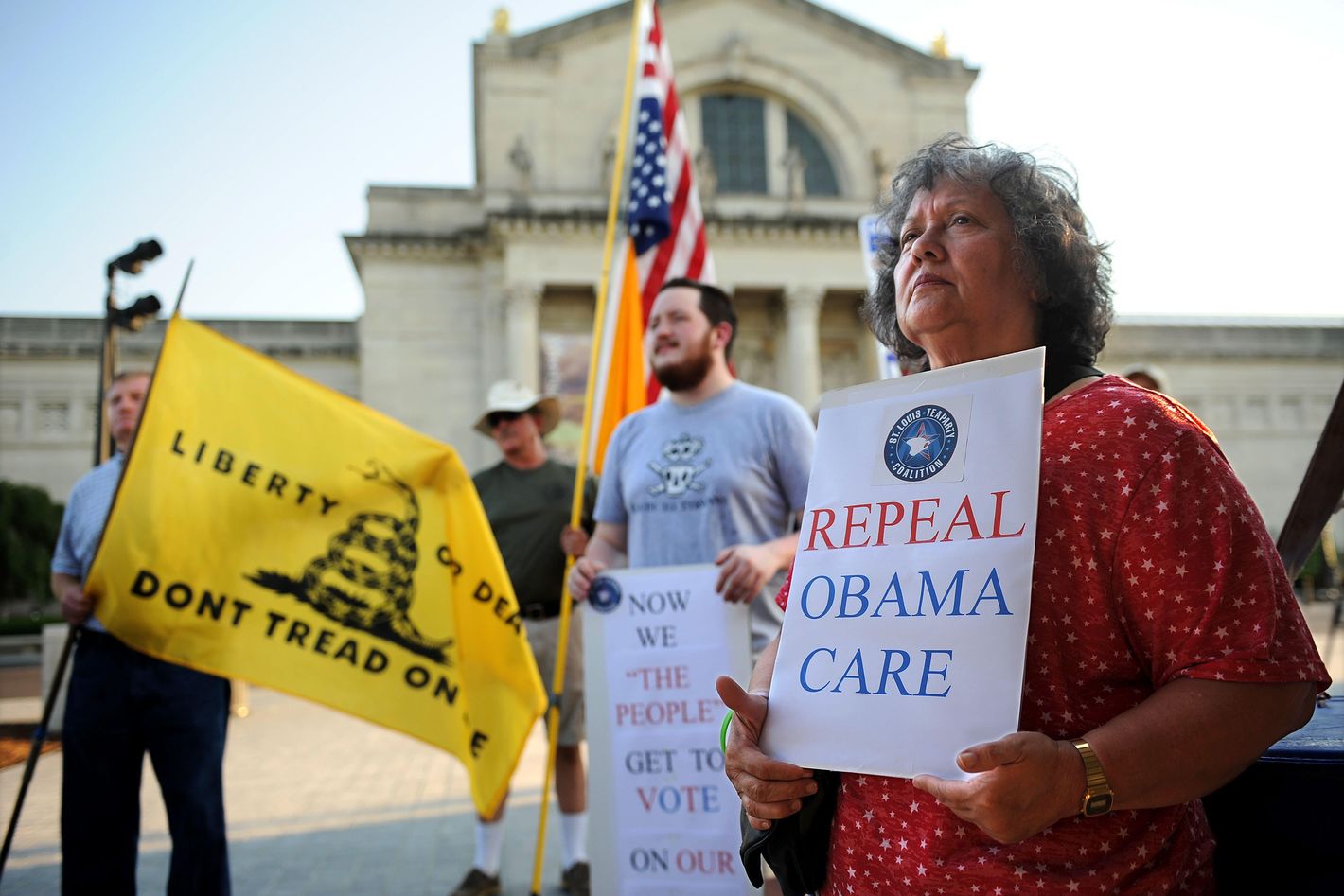
Photo: Sid Hastings/Alamy Stock Photo
The big miscalculation Democrats made in handling the recent government shutdown was their belief that Donald Trump could be induced to force an extension of soon-to-expire Obamacare premium subsidies on congressional Republicans as part of a deal to reopen the government. He never even agreed to negotiate on the subject. So instead, the booby prize Democrats won was a guaranteed Senate vote on the Obamacare subsidies by the second week in December (huge premium spikes already announced by most insurers will go into effect on January 1 if no action is taken). The House promised nothing, and the Senate pledge is vague enough as to be potentially meaningless if a workable deal isn’t crafted in advance.
There is a possible deal that would combine a minimal (probably one-year) extension on the subsidies with so-called Republican reforms (e.g., cutting off benefits at some fixed income point, measures preventing fake beneficiaries, and perhaps some GOP policy baubles like enhanced health savings accounts). But as health-care-policy maven Jonathan Cohn observes, it’s unclear how much of an appetite there is for compromise:
Compromise requires meeting somewhere in the middle and already some members of the GOP are doing the opposite — taking this new round of debate as a cue to dust off ideas that would roll back or repeal big pieces of Obamacare. And these efforts seem to have attracted the interest of Trump, who has been posting messages like “Obamacare Sucks” on social media.
Any bill will need 60 votes, just like the measure to reopen the government. And it would have a prayer in the House only if it’s truly bipartisan and if Trump comes down hard on conservatives who would vote against the Second Coming of Christ if it were in any way connected with the 44th president and his legacy health-care program.
Unfortunately for the roughly 42 million people who depend on Obamacare policies for their health insurance, the White House seems less interested in a compromise on subsidies than in replacing them and perhaps undermining the entire structure set up by the Affordable Care Act, as Politico reports:
Centers for Medicare and Medicaid Services Administrator Dr. Mehmet Oz said Monday that he’d spent “a good part of the weekend with the White House” working on a plan to replace ACA subsidies with a new policy.
“We have lots of great ideas,” Oz said on Fox News on Monday. “But I don’t want to show our cards. As the president often says, why would I telegraph to you what we are going to do? …”
“We want a health care system where we pay the money to the people instead of the insurance companies and I tell you, we’re going to be working on that very hard over the next short period of time — where the people get the money,” Trump said in the Oval Office on Monday.
As Cohn notes, this sort of talk is the kind of thing we heard from Trump and his party when they were unsuccessfully trying to kill Obamacare during the president’s first term:
Conservatives have long argued the best way to reform health care is by giving people more control over their health care dollars, which typically means scaling back insurance so that it covers only catastrophic expenses, and then having people pay for everything else out of their own pockets using money they’ve put into private accounts that get some kind of government assistance.
Past versions of these proposals have, upon inspection, looked more like vehicles to give wealthy people a tax break. They have diverted money into broker and management fees. And as a practical matter, they have threatened to do what many other conservative proposals would — namely, to break up insurance pools so that people who are in good health spend less, while those who need medical care spend more.
In other words, Republicans would prefer to return to the days of widespread age and health-condition discrimination by insurers and then encourage people to rely less on insurance to begin with. Many health experts warn that this approach would encourage younger and healthier people to bail out of risk pools and leave their less fortunate fellow citizens with reduced coverage at higher costs.
If this is the direction Trump and the GOP are headed, there won’t be any feasible bipartisan deal in Congress in December — or at the next pressure point, January 30, when the current government-reopening measure expires. That might be why some Republicans have talked about abandoning bipartisanship altogether and pursuing another budget-reconciliation bill (like the recently enacted One Big Beautiful Act) to “reform” health care and achieve some other GOP legislative priorities on simple party-line votes. Trump himself, of course, would prefer to just “nuke” the filibuster and let Senate Republicans do whatever they want on health care or anything else they choose to address. Since that seems unlikely, we could enter a time machine to go back to 2017, when Republicans tried and failed to use reconciliation to “repeal and replace Obamacare.” Indeed, in a recent interview with Laura Ingraham, the president himself referred to Trumpcare — the term used generally for his repeal-and-replace legislation — for his vision of an improved health-care system.
You get the sense listening to the president and his supporters that they are mostly focused on finding some rhetoric to show interest in the affordability concerns that are depressing Trump’s job-approval ratings and threatening GOP plans for the midterms. If that’s all Republicans care about, it’s very bad news for people losing health coverage, because they can’t afford the insurance that’s been keeping them alive.
More on Politics
How Historically Accurate Is Death by Lightning?Trump Really Wants to Mail Out $2K Checks With His SignatureJ.D. Vance Brags About Trump’s Appalling Lack of Sleep
From Intelligencer - Daily News, Politics, Business, and Tech via this RSS feed

